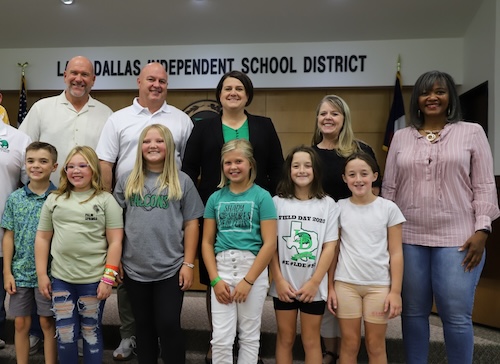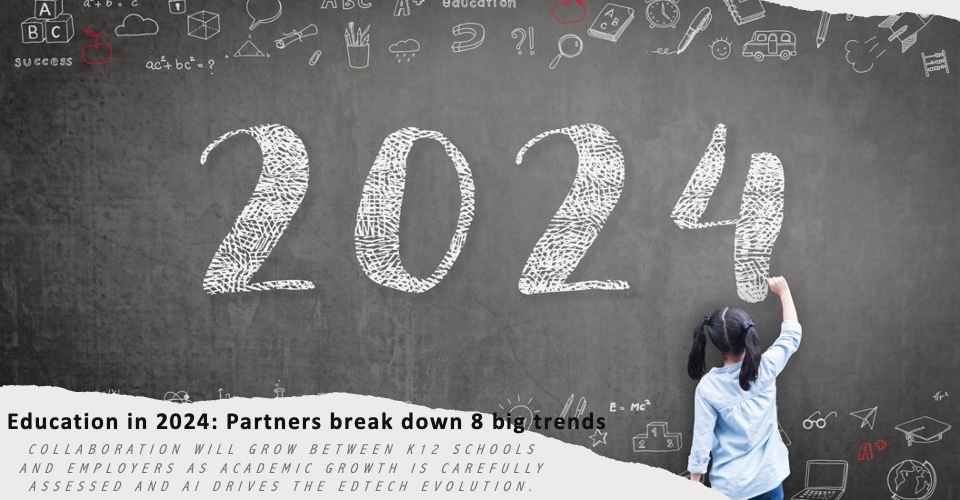Superintendent Mark Bedell had to check himself when, during his stint as an assistant principal, he almost suspended a student for repeatedly showing up to school with sagging pants. Looking back, the incident became a critical step on a journey many superintendents and K12 leaders take—that of remaining “real people” in their relationships with staff and students.

That morning, Bedell, who is now superintendent of Anne Arundel County Public Schools in Maryland, had been cut off by another driver on his commute and was given the middle finger when he honked his horn. After issuing a reprimand, it took him a moment to realize that he was probably taking his frustration out on the student and may also have succumbed to implicit bias.
It turned out the student was then experiencing homelessness, and to this day, the exchange illuminates the distress that educators are sometimes causing students, albeit inadvertently, Bedell explains.
“The kid put his hand on my shoulder, he was crying and he said, ‘Mr. Bedell, you don’t even know me. I don’t get in trouble, I come to school every day, and you’re riding me over my pants … I’m trying to do my best and you’re getting ready to put me right back out on the streets I’m trying to escape,'” recalls Bedell, who was recently named Superintendent of the Year by the National Alliance of Black School Educators.
“It floored me,” he adds. “It floored me.”
Connecting on a human level was the main reason Bedell took an extensive listening tour when he arrived in Anne Arundel County in July 2022 after spending six years as superintendent of Kansas City Public Schools in Missouri. He learned that parents and families wanted the district to transition to the science of reading and revamp the math curriculum and he heard concerns about staffing shortages.
He offers this advice to other incoming superintendents who would go on their own listening tours. “No. 1, be vulnerable—let people know who you really are,” he asserts. “People see superintendents as these robots and I’ve always felt like when I go out and I may crack a joke, I’ve seen teachers say ‘Oh he’s human. Oh, he has a personality.'”
That vulnerability—along with a recounting of his life story—provides credibility to engage in more difficult conversations about systemic problems in public K12 education. “I let people know I’m not perfect, I’ve made mistakes,” he explains. “I let parents know I’m here to make sure your kids are going to be able to prosper and they’re going to learn in a barrier-free environment, and there are some things we have done as adults to harm children that we can no longer allow to happen.”
For Bedell, that harm has been caused by implicit bias, which is why he will lay out the data when he meets with parents and plot out how the district is innovating in a more equitable and transparent direction. “We have assumptions and we have these expectations and we don’t know these kids and we harm them,” says Bedell, who also experienced homelessness as a child.
“I don’t want to be a superintendent who puts any further harm on these kids because of decisions we’ve made that create inequitable opportunities, that create barriers and that ultimately stifle any hope these kids may have that they can get through school and live a better life than what they’ve been handed.”
Keeping it real, people—on social media
Superintendent Kristin Brown, who recently took the helm at Lake Dallas ISD in Texas, began using social media in the previous district she led, Lyford CISD, to remain in touch with families on a human level—particularly during the uncertainties of COVID. “It really eliminated a lot of opportunity for rumors and misinformation to be spread,” Brown notes.
Family engagement: 5 key strategies to help leaders connect more effectively
The connections she made motivated community members to alert her when they spotted false information being posted about her or the district on social media. She bolsters those relationships by regularly surveying her staff and the community, and ensuring all messages are translated into families’ preferred languages.
She encourages other superintendents to be brave and not be afraid to open themselves up in their in-person and online communications with their communities. “You have to be willing to hear the negative,” she explains. “People will take advantage on social media to share their unhappiness with your views or decisions. Take it in stride, and understand the positive outcomes of commutating with stakeholders far outweigh the negative response.”
Brown uses Facebook in particular to share “go team”-type posts about students’ achievements, such as broadcasting a pep rally on Facebook Live. “If it’s just information about the great things are kids doing, which happens on a daily basis, you can just post, you don’t have to share your own thoughts,” she concludes.










